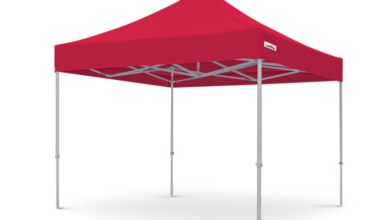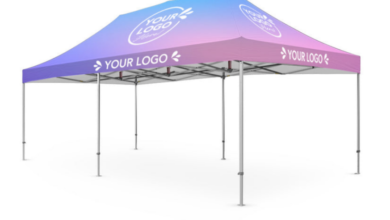Navigating the Road: Understanding Commercial Auto Insurance for Your Business Fleet

Introduction
Managing a business fleet involves more than just maintaining vehicles and coordinating logistics; it also requires ensuring that your assets are adequately protected. Commercial auto insurance is essential for safeguarding your business fleet against risks such as accidents, theft, and liability claims. This guide provides a comprehensive overview of commercial auto insurance, helping you understand its importance, coverage options, and how to choose the best policy for your business.
What is Commercial Auto Insurance?
Commercial auto insurance is a policy designed to cover vehicles used for business purposes. This type of insurance provides financial protection against physical damage, liability, and other risks associated with operating commercial vehicles. Whether you have a small fleet of delivery vans or a large array of trucks, commercial auto insurance is crucial for protecting your business investments.
Importance of Commercial Auto Insurance
Having commercial auto insurance is vital for several reasons:
- Legal Requirement: Commercial truck insurance is designed to provide financial protection for businesses that use vehicles as part of their operations. Most states require businesses to have a minimum level of auto insurance for their vehicles. Without it, you risk facing legal penalties, fines, and the suspension of your business operations.
- Financial Protection: Accidents, theft, and other incidents involving business vehicles can lead to significant financial losses. Commercial auto insurance helps mitigate these risks by covering repair costs, medical expenses, and legal fees
- Asset Protection: Your vehicles are valuable assets. Insurance ensures that you can repair or replace them in case of damage or theft, minimizing disruption to your business operations.
- Liability Coverage: If one of your drivers causes an accident, you could be held liable for damages and injuries. Commercial auto insurance provides liability coverage, safeguarding your business from costly lawsuits.
Types of Coverage
Commercial auto insurance offers various types of coverage to meet different needs:
Liability Coverage
Liability coverage is the most critical component of commercial auto insurance. It includes:
- Bodily Injury Liability: Covers medical expenses, lost wages, and legal fees if your driver is responsible for injuring someone in an accident.
- Property Damage Liability: Pays for damages to another person’s property caused by your vehicle.
Physical Damage Coverage
This coverage protects your vehicles against damage from various incidents:
- Collision Coverage: Covers repair or replacement costs if your vehicle is damaged in a collision, regardless of fault.
- Comprehensive Coverage: Protects against non-collision-related damage such as theft, vandalism, fire, and natural disasters.
Medical Payments Coverage
Medical payments coverage, also known as MedPay, pays for medical expenses for you and your passengers, regardless of fault, following an accident.
Uninsured/Underinsured Motorist Coverage
This coverage protects you if your vehicle is involved in an accident with a driver who has insufficient or no insurance. It helps cover medical expenses and property damage.
Hired and Non-Owned Auto Coverage
If your employees use personal or rented vehicles for business purposes, this coverage extends your commercial auto policy to protect those vehicles.
Factors Affecting Premiums
Several factors influence the cost of commercial auto insurance premiums:
- Number and Type of Vehicles: Larger fleets and specialized vehicles, such as trucks or heavy machinery, typically have higher premiums.
- Usage: How often and for what purposes the vehicles are used can affect premiums. Vehicles used for long-distance travel or carrying hazardous materials may have higher rates.
- Driver Profiles: The driving records, experience, and ages of your drivers can impact insurance costs. Safer driver profiles generally lead to lower premiums.
- Location: Insurance rates vary by location due to factors like traffic density, accident rates, and crime levels.
- Coverage Limits and Deductibles: Higher coverage limits and lower deductibles increase premiums but provide more extensive protection.
Choosing the Right Policy
Selecting the right commercial auto insurance policy involves assessing your business needs and comparing different options. Here are some tips to help you make an informed decision:
Assess Your Needs
Evaluate the size of your fleet, the types of vehicles, and how they are used. Determine the level of coverage required to protect your assets and meet legal requirements.
Compare Quotes
Obtain quotes from multiple insurance providers to compare coverage options and premiums. Consider working with an insurance broker who can help you navigate different policies and find the best fit.
Review Policy Details
Carefully review the terms and conditions of each policy. Pay attention to exclusions, coverage limits, and deductibles to ensure the policy meets your needs.
Consider Bundling
Some insurance companies offer discounts for bundling multiple policies, such as commercial auto and general liability insurance. Bundling can provide comprehensive coverage at a lower cost.
Check Provider Reputation
Choose an insurance provider with a good reputation for customer service and claims handling. Read reviews and seek recommendations from other business owners.
Maintaining Your Policy
Once you have selected a commercial auto insurance policy, it’s essential to maintain it properly to ensure continuous coverage and potentially lower premiums:
- Regularly Update Your Policy: Notify your insurance provider of any changes to your fleet, such as adding or removing vehicles, to ensure accurate coverage.
- Implement Safety Programs: Encourage safe driving practices and provide training to your drivers. A good safety record can help lower premiums.
- Monitor Claims: Keep track of any claims made and work with your insurance provider to resolve them promptly. Excessive claims can lead to higher premiums.
Conclusion
Commercial auto insurance is a critical component of managing a business fleet. It provides essential protection against financial losses, legal liabilities, and operational disruptions. By understanding the different types of coverage, factors affecting premiums, and tips for choosing the right policy, you can ensure your business fleet is adequately protected. Invest in comprehensive commercial auto insurance to safeguard your assets and maintain smooth business operations.






